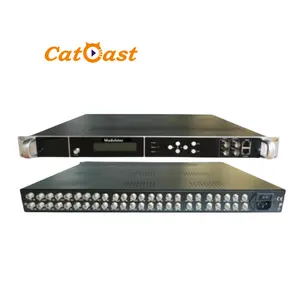

Modulator OFLYCOMM Modulator Fm Car Bluetooth RF-BM-S01 Ble 4.0 Uart Interface With PCB Antenna Bluetooth Module






















Modulators play a pivotal role in the realm of telecommunications, serving as the backbone for converting data into radio waves that can be transmitted over various frequencies. These devices are integral to systems ranging from fm transmitters to sophisticated frequency shift keying applications. By manipulating the amplitude, frequency, or phase of the carrier signal, modulators enable the seamless broadcast of audio and visual content across different mediums.
There is a diverse array of modulators available, each suited to specific applications. For instance, single sideband modulators are crucial for long-distance communication without the bandwidth consumption of traditional AM signals. In digital data transmission, minimum shift keying and quadrature phase shift keying (QAM) are widely used for their efficiency and resistance to interference. These modulators are not just limited to professional use; fm modulator for car and bluetooth fm transmitter devices have become commonplace for personal media consumption on the go.
Modern modulators are designed with user-friendliness in mind, often accompanied by intuitive interfaces and remote controls for easy navigation. Materials used in these devices are selected for durability and performance, ensuring longevity and consistent operation. Innovations like the nrf24l01 module exemplify the integration of low-power wireless communication, enhancing the functionality of modulators in various devices.
The advancement in modulation techniques, such as bluetooth radio transmitter for car and fm radio bluetooth transmitter, has revolutionized the way we experience media in our vehicles, providing wireless convenience and connectivity. Similarly, bt fm transmitter technology has enabled smartphones to interface with older car radios, granting them new life with streaming capabilities.
When choosing a modulator, it is essential to consider the specific needs of the application, whether it's for a simple am modulator setup or a complex shift keying system. Factors such as compatibility, frequency range, and the type of modulation should guide the selection process to ensure that the device meets the intended requirements.
Modulators are a testament to the evolution of communication technology, adapting to the needs of both the industry and personal use. While the market offers a wide range of options, it is crucial to select a modulator that aligns with your specific needs, ensuring efficient and reliable performance for any application.